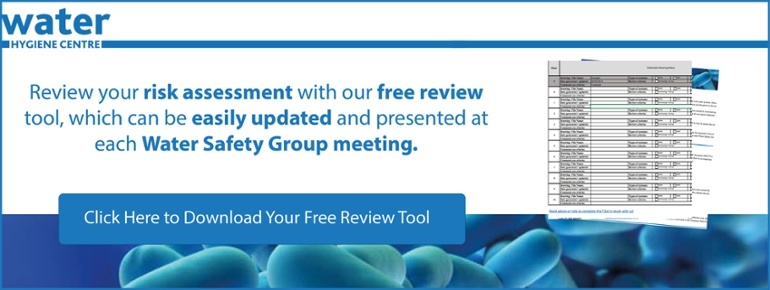European statistics indicate that more than 1000 travellers contract Legionnaires' disease each year and according to the official statistics published by Public Health England, travel associated Legionnaires’ disease accounted for approximately 43% of all confirmed cases reported in England and Wales over the three year period from 2014 to 2016.
Information about Legionnaires’ disease for managers of tourist accommodation
This level is typical of what can be observed year on year and is a matter that has not gone unnoticed by the authorities. In December 2017, the European Centre for Disease Prevention & Control [ECDC] published a leaflet entitled “Information about Legionnaires’ disease for managers of tourist accommodation”; which offers guidance specifically for tourist accommodation including hotels, apartments and camping sites.
Reducing the risk: a 15-point plan for reducing the risk from Legionella
In the blog this week we highlight the fifteen-point plan suggested in the guidance listed above
The risk of Legionnaires' disease can be minimised.
Hoteliers and other accommodation owners are recommended to follow the 15-point plan for reducing the risk from Legionella:
- Have one named Responsible Person for Legionella control.
- Ensure the named person has sufficient Legionella training and experience to be able to carry out the role competently and other staff are trained to be aware of the importance of their role in controlling Legionella.
- Keep hot water hot and circulating at all times: 50°C - 60°C (too hot to put hands into for more than a few seconds) throughout the entire hot water system. ECDC HEALTH INFORMATION Legionnaires’ disease for managers of tourist accommodation 3.
- Keep cold water cold at all times. It should be maintained at temperatures below 20°C throughout the system to all outlets (this may not be possible when the ambient temperature is high, but every effort should be made to ensure that cold water entering the premises and in storage remains as cold as possible).
- Perform a Legionella flushing regime of all taps and showers in guest rooms and other areas for several minutes to draw through water (until it reaches the temperatures stated in points 3 and 4) at least once a week if rooms are unoccupied, and always prior to occupation.
- Keep shower heads and taps clean and free from scale.
- Clean and disinfect cooling towers and associated pipes used in air conditioning systems regularly - at least twice per year.
- Clean, drain and disinfect water heaters (calorifiers) once per year.
- Disinfect the hot water system with high level (50mg/l) chlorine for 2–4 hours after work on the system and water heaters and before the beginning of every season.
- Clean and disinfect all water filters regularly, as directed by the manufacturer, at least every one to three months.
- Inspect water storage tanks, cooling towers and visible pipe work monthly. Ensure that all coverings are intact and firmly in place.
- Inspect the inside of cold water tanks at least once per year and disinfect with 50mg/l chlorine and clean if containing a deposit or otherwise dirty.
- Ensure that when carrying out system modifications or new installations they do not create pipework with intermittent or no water flow, and disinfect the system following any work.
- If there is a spa pool (also known as whirlpool spas, ‘Jacuzzis’, spa baths), ensure that: − it is continuously treated with 2–3mg/l chlorine or bromine and the levels and pH are monitored at least three times per day; − at least half of the water is replaced each day; − sand filters are backwashed daily; − the whole system is cleaned and disinfected once per week.
- Keep daily water safety records of all water treatment readings, such as temperature, pH and chlorine concentrations and ensure they are checked regularly by the manager.
Further advice about specific controls should be sought from experts in this field. They can carry out a full Legionella risk assessment of the accommodation. Your local public health authorities can advise you further.”
Are you prepared for the holidays?
Feel free to reach out if you have any questions about the issues mentioned above or if you would like to consult with one of our experts on water hygiene.
Editors Note: The information provided in this blog is correct at date of original publication - April 2019.
© Water Hygiene Centre 2019
Image by Moonglow from Pixabay









